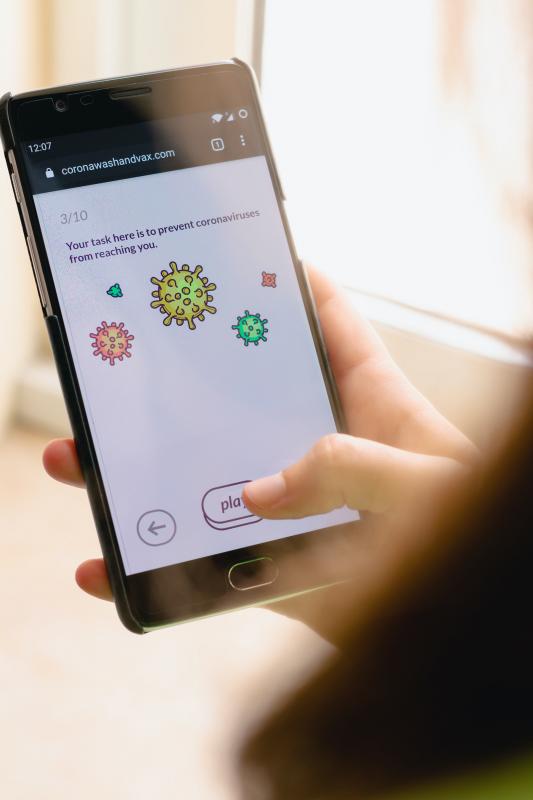
The COVID-19 pandemic has created a need for tens of thousands of contact tracers -- and some colleges are stepping in to help fill that need by offering free introductory online classes open to the public.
Johns Hopkins University, Purdue University Global and the University of Houston all are offering free online classes covering the basics of contact tracing, an established practice in public health of identifying the contacts of individuals who become infected with a communicable disease and notifying those contacts of potential exposure as part of an effort to contain transmission.
More than 200,000 people have completed an introductory course offered by Johns Hopkins on the MOOC platform Coursera.
“The COVID-19 crisis has created an unprecedented need for contact tracing across the country,” says the course description. “The job qualifications for contact tracing positions differ throughout the country and the world, with some new positions open to individuals with a high school diploma or equivalent.”
Josh Sharfstein, vice dean for public health practice and community engagement and professor of the practice at Johns Hopkins, said the course has been translated into Arabic, Nepali, Portuguese and Spanish. It is free for students to take the course and earn the associated certificate. Sharfstein said the costs are covered by Bloomberg Philanthropies.
"This came out of New York State wanting to hire a large number of contact tracers very quickly and Bloomberg Philanthropies wanting to help New York State," Sharfstein said of the origins of the course. "They wanted a basic course. We actually had a faculty member who was in the progress of putting together a course for Coursera."
Sharfstein said the huge response from people interested in taking the free course was surprising.
"I've been overwhelmed," he said. "We didn’t expect anything like this. Even beyond the numbers, we’re giving the content away for free to others who want to adapt it. We’re giving Creative Commons licenses to other academic partners, other governments. We just want to help."
The University of Houston is also offering an open course on contact tracing on Coursera. The public course, with certificate upon completion, is free through July 31; after that it will cost $49 to enroll and receive a certificate (the course will remain free to audit).
“Many people are seeking employment as contact tracers either as a full-time position or as a second position as part of the gig economy,” said Bettina Beech, the co-organizer of the course and professor and associate dean for research at Houston’s College of Medicine.
Beech said effective contact tracing requires a wide range of skills, including investigative skills and oral communication skills. She said contact tracers need to be able to “convey complex information in a simple way but also have good listening skills to hear beyond what someone might be saying to what someone is not saying. Domestic violence has increased because of the pandemic, and contact with a contact tracer may be one of the few avenues someone in an unsafe situation at home has to be able to communicate. Connecting people with social services -- we’re seeing food insecurity skyrocket -- not only finding out where someone has been and who else they have had contact with, but what their needs have been, to connect them with social services, has been very important.”
Beech said contact tracers also need to be able to enter data accurately into a system and to take detailed notes, to be able to communicate with health-care providers, and to protect confidentiality.
Will a single course prepare a student for an entry-level contact tracing job? It’s a question without a clear answer. Beech said there are no national training standards for contact tracers: she and a colleague at Houston's College of Medicine, LeChauncy Woodard, just published an article in the journal Ethnicity & Disease calling for the creation of national standards that would lead to a widely recognized certification process.
Melissa Burdi, the dean and vice president of the School of Nursing at Purdue Global, said about 5,000 people have signed up for the university’s free online class on contact tracing and nearly 1,500 have completed it. The class, which will be free until Sept. 30 and $295 after that, requires a high school diploma or equivalent as a prerequisite.
Burdi said the self-paced, asynchronous course is reviewed weekly to make sure the content is aligned with the latest guidance from the Centers for Disease Control and Prevention and the World Health Organization. The course includes five units: the first, she said, introduces students to a basic knowledge of COVID-19, the second delves into what contact tracing investigation looks like, the third addresses effective communication skills and the fourth focuses on security and legal issues around the handling of confidential medical information. A fifth unit synthesizes the material and culminates in a final exam.
"This is a niche that has emerged," said Burdi. "This has definitely come forward as a job opportunity within local health-care departments, within government agencies. There is a need within the academic environment, our school systems, K-12, the university settings and frankly any employer, to be candid, as we look at the return to work."
"As we’re seeing a rise in cases and some states are vacillating back and forth between their [reopening] phases, the need is great."
"open" - Google News
July 22, 2020 at 02:03PM
https://ift.tt/3jtKmuM
Open courses teach the basics of contact tracing - Inside Higher Ed
"open" - Google News
https://ift.tt/3bYShMr
https://ift.tt/3d2SYUY
Bagikan Berita Ini















0 Response to "Open courses teach the basics of contact tracing - Inside Higher Ed"
Post a Comment